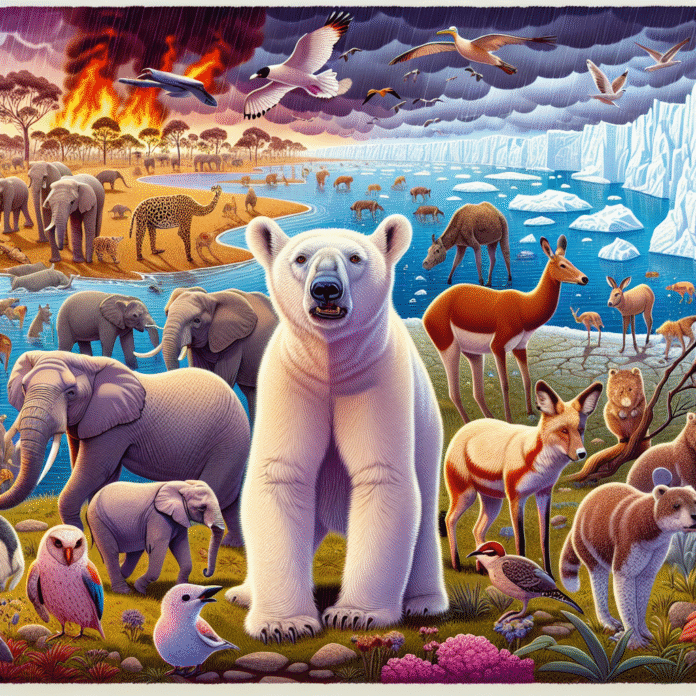Climate Change Poses Risk to Thousands of Species
Climate Change Now Threatens Thousands of Species on Earth
Climate change is emerging as one of the most significant threats to biodiversity across the globe. As temperatures rise and weather patterns shift, ecosystems are being disrupted, putting countless species at risk. The current trajectory of climate change is expected to exacerbate existing environmental challenges, leading to increased habitat loss, altered food availability, and heightened competition among species.
Impact on Biodiversity
Research indicates that climate change could lead to the extinction of thousands of species if global temperatures continue to rise. Many organisms are unable to adapt quickly enough to the rapidly changing conditions, forcing them to migrate to cooler areas or face extinction. For instance, polar bears are losing their sea ice habitat due to warming temperatures, while coral reefs are suffering from bleaching events linked to increased ocean temperatures.
Habitat Loss and Alteration
As climate change progresses, habitats are undergoing significant transformations. Forests, wetlands, and grasslands are being altered, affecting the species that rely on these ecosystems for survival. The destruction of habitats not only threatens native species but also allows invasive species to flourish, further complicating conservation efforts.
Conservation Strategies
To combat the threats posed by climate change, conservationists are advocating for a multifaceted approach. Strategies include creating wildlife corridors to facilitate species migration, restoring degraded habitats, and implementing sustainable land-use practices. Moreover, protecting existing natural areas is crucial for preserving biodiversity and providing refuge for vulnerable species.
Global Cooperation
Addressing climate change and its impact on biodiversity requires global cooperation. International agreements, such as the Paris Agreement, aim to unite nations in the fight against climate change. By committing to reduce greenhouse gas emissions and investing in renewable energy sources, countries can help mitigate the effects of climate change on ecosystems worldwide.
Community Involvement
Local communities play a vital role in conservation efforts. Engaging with indigenous populations and local stakeholders can lead to more effective conservation strategies, as these groups often have valuable knowledge of their ecosystems. Education and awareness campaigns can also empower communities to take action toward protecting their natural environments.
Conclusion
The threat of climate change to Earth’s biodiversity is an urgent issue that demands immediate attention. By understanding its impacts and implementing effective conservation strategies, we can work towards creating a sustainable future for the myriad species that inhabit our planet. It is imperative that we act now to protect the delicate balance of ecosystems and the diverse life forms they support, ensuring that future generations can enjoy a rich and vibrant natural world.
